November 14, 2024 | 18:01 GMT +7
November 14, 2024 | 18:01 GMT +7
Hotline: 0913.378.918
November 14, 2024 | 18:01 GMT +7
Hotline: 0913.378.918
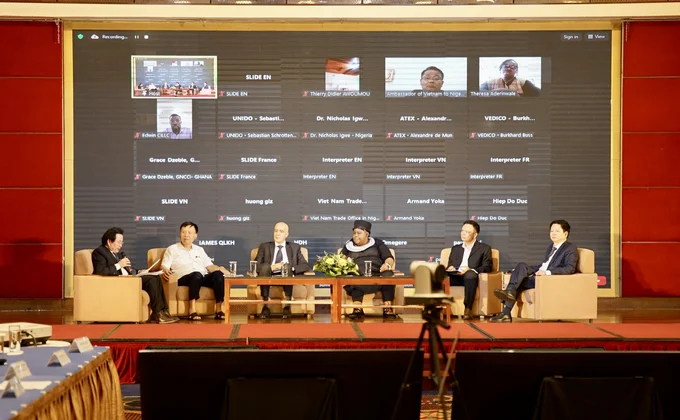
Roundtable discussion of the South-South Cooperation Workshop on the afternoon of July 25. Photo: Linh Linh.
On the afternoon of July 25, at the International Workshop on “Strategic Vision for South-South Cooperation for Food Security and Sustainable Development for Africa,” Mr. Pham Ngoc Mau, Deputy Director of the Department of International Cooperation (Ministry of Agriculture and Rural Development), stated that Vietnam has implemented numerous projects in developing countries, aiming to fulfill the mission of transferring agricultural science, technology, and techniques.
To date, Vietnam has signed nearly 30 bilateral cooperation agreements on agriculture with African countries, participated in tripartite cooperation with almost 10 countries, and sent more than 400 experts to work in Africa. Agricultural projects involving Vietnam have helped increase crop productivity by 2 to 4 times, improving living standards and addressing food security in the region.
“The Vietnam-Africa tripartite cooperation is considered a model of South-South cooperation. Vietnam is proud of its innovative, easy-to-apply, and highly efficient agriculture, which has helped Vietnam transform from a food-deficient country into a food-secure country and is now a world leader in exporting rice and other agricultural products,” Mr. Mau shared.
With its international responsibilities, Vietnam has supported African countries in developing projects, master plans for agricultural land, detailed land use plans, and cooperation in agricultural scientific and technical research. Additionally, Vietnam has organized training courses both domestically and in host countries to enhance the capacity of agricultural extension officers, managers, and policymakers.
Vietnam’s approach to tripartite cooperation is to create opportunities for mutual learning and development, actively transfer technology and share information, and work collaboratively to benefit African countries.
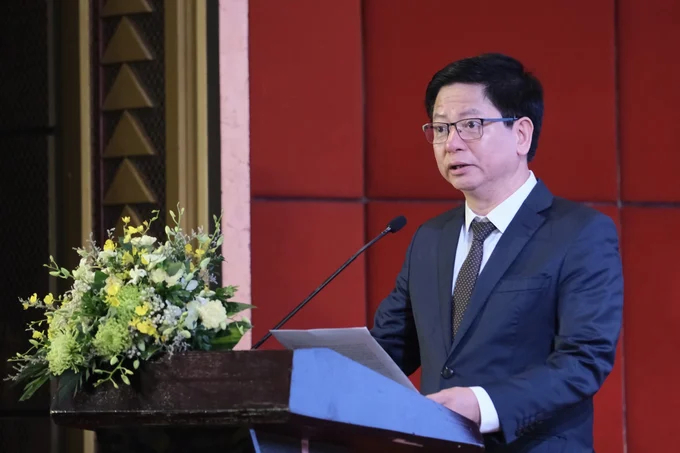
Mr. Pham Ngoc Mau: Vietnam is committed to ensuring food security. Photo: Quynh Chi.
On that basis, the Deputy Director emphasized that tripartite cooperation projects within the framework of South-South cooperation are essential for agricultural cooperation projects to be effective and successful. In these projects, Vietnam will provide techniques, technology, experts, seeds, necessary agricultural materials, and project management skills, while the third country will be the beneficiary.
FAO data (2022) shows that 1 in 5 Africans are chronically hungry. The Global Hunger Index 2023 report also shows that about 1 in 7 countries in Africa are in a state of famine, with some even in a state of emergency, such as Angola, Ethiopia, Zambia, Sierra Leone, Chad, Niger, and Somalia.
“Vietnam is committed to not only ensuring food security but also transforming agriculture from an industry that generates high emissions into one that contributes to reducing emissions, calculating carbon credits to generate additional income for farmers,” Mr. Mau stated.
On behalf of the Ministry of Agriculture and Rural Development, the leaders of the Department of International Cooperation pledge to support developing countries impartially and dedicatedly until they master agricultural science and technology.
With the advancement of science, especially AI technology, Mr. Mau noted that Vietnamese experts can now directly support African countries online. Additionally, he suggested that recipient countries should formalize their commitment to food production by signing memorandums of understanding at the government level.
This approach aims to increase the number of South-South cooperation projects in the agricultural sector between Vietnam and Africa. Currently, these projects are modest and do not fully reflect the potential and opportunities for cooperation, nor do they meet the expectations of the governments and people on both sides.
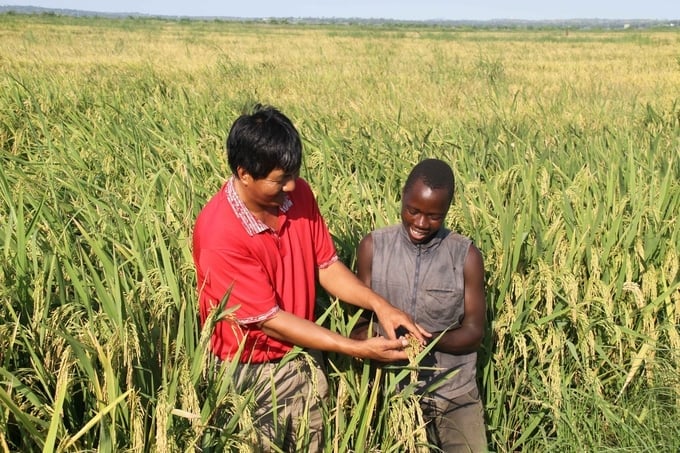
More than 400 Vietnamese agricultural experts traveled abroad to support Africa. Photo: Thanh Thuy.
In an interview with the Vietnam Agriculture News, Mr. Paul Kayizzi, representative of Uganda's Continental Markets Company, acknowledged that the country is facing difficulties in ensuring food security. “Vietnam’s experiences with rice are very suitable for us,” he said.
In Uganda, many people receive government support for bamboo cultivation. This plant can adapt to various climates and is used for multiple purposes in daily life. Additionally, Ugandan farmers prefer bamboo over eucalyptus and acacia due to its ability to thrive in poor soil.
Through the workshop, Mr. Kayizzi hopes to learn more about how to develop bamboo on a commercial scale and is committed to inviting high-quality experts to Uganda.
However, Mr. Nguyen Song Ha, Assistant Chief Representative of FAO in Vietnam, highlighted a significant challenge: the language barrier faced by Vietnamese agricultural experts willing to go to Africa. Over the past years, FAO statistics show that only a few Vietnamese experts are fluent in French, Portuguese, or Spanish.
“Most people proficient in foreign languages and have professional skills have stable jobs and high incomes in Vietnam. It is difficult to invite such experts to Africa,” Mr. Ha explained.
In addition to income issues, Ms. Vuyiswa Tulelo, South African Ambassador to Vietnam, pointed out that cultural differences can pose difficulties for Vietnamese experts. She mentioned that experts need time to understand and integrate with local communities. “That is almost the only way to support and disseminate knowledge to the people,” she confided.
Mr. Le Thanh Tung, Deputy Director of the Department of Crop Production, shared that rice production in Vietnam is not simply about ensuring food security but is integrated into many national strategies, including the national target program on new rural development. In addition, the Vietnamese government also pays special attention to the rice industry, most recently issuing a project on 1 million hectares of high-quality rice to reduce emissions.
Translated by Quynh Chi
![Global Blue Carbon Potential - Lessons for Vietnam: [IV] The future of carbon credits](https://t.ex-cdn.com/nongnghiep.vn/608w/files/linhnhp/2024/11/12/4339-ca2-nongnghiep-184335.jpg)
(VAN) The ocean and coastal areas are enormous carbon sinks that have not yet been fully exploited. The potential and future of blue carbon credits are gaining increasing attention from countries.
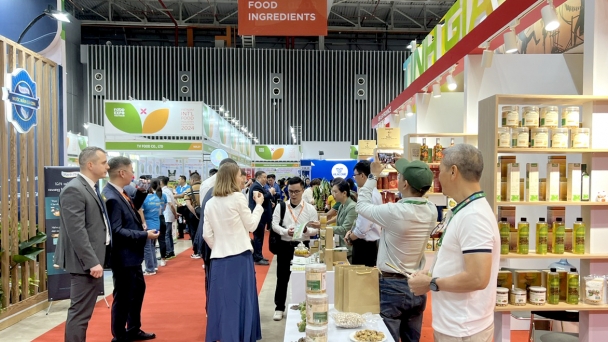
(VAN) The Vietnam Foodexpo 2024, the Vietnam International Food Industry Exhibition of 2024, has recently launched, offering a diverse array of food products from various regions of the nation.
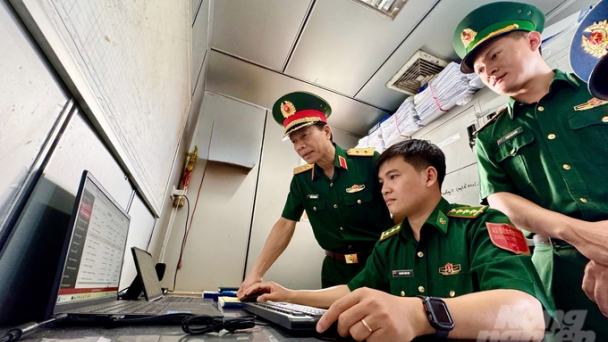
(VAN) The Ministry of National Defense conducted an inspection and held discussions on anti-IUU fishing efforts at Ben Da Border Guard Station on November 12 (Border Guard Command of Ba Ria - Vung Tau Province).
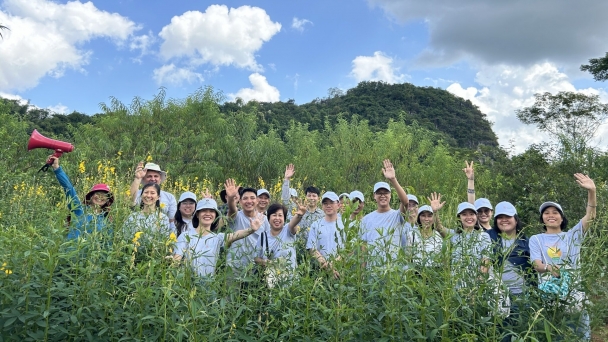
(VAN) Transitioning to agroecology is a key approach to fostering sustainable development in Southeast Asia, ensuring both economic benefits and quality of life.
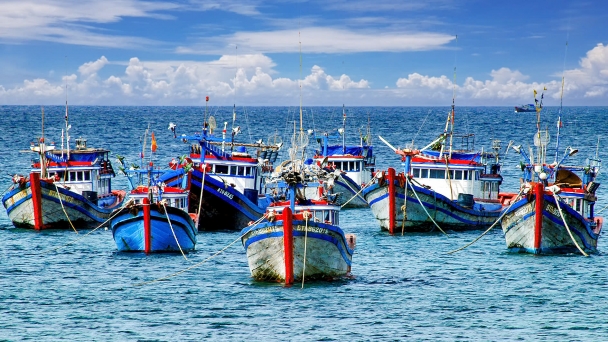
(VAN) Binh Thuan province will support the satellite service subscription fee for the vessel monitoring system (VMS) on fishing boats in the area to help fishermen ease their difficulties and lift the 'yellow card'.
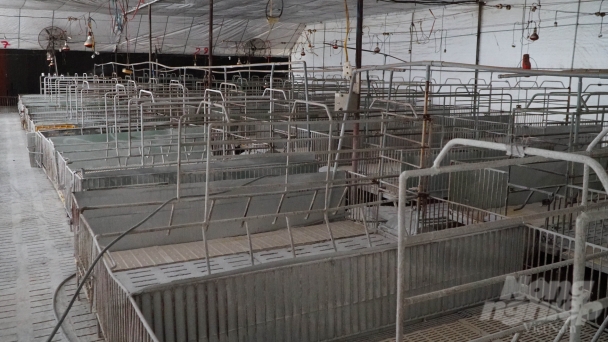
(VAN) Having suffered damage from African swine fever outbreak, Tay Ninh is increasing vigilance so the disease can no longer affect livestock and the economy.
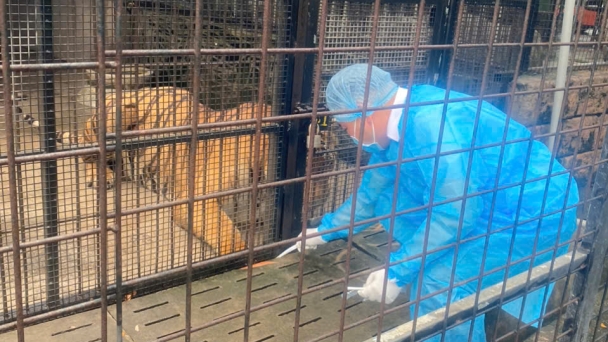
(VAN) The deaths of tigers, leopards, and lions due to A/H5N1 at the Vuon Xoai Ecotourism Area and My Quynh Safari forces Dong Nai's veterinary sector to change its response strategy.